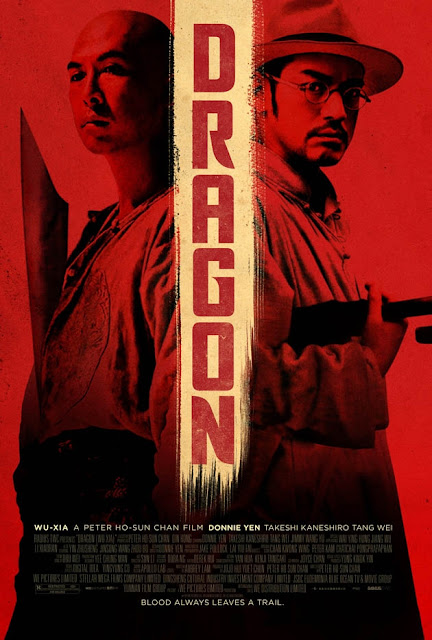Title: Pedicab
Driver
Director: Sammo Hung
Released: 1989
Starring: Sammo
Hung, Max Mok, Nina Li Chi, Fennie Yuen, Suen Yuet, John Sham, Billy
Chow, Lau Kar-Leung, Sun Yueh
Plot: Lo Tung (Hung)
and his friend Malted Candy (Mok) are pedicab drivers working in
1930’s Macao while hoping to win the hearts of their respective
love interests which soon leads them into unwanted attention from the
local gangster Master 5 (Sham)
Review: When I cast
my mind back to the early titles which first got me into Martial Arts
cinema there are the obvious classics like Jackie Chan’s “Police
Story” and Bruce Lee’s “Enter The Dragon” but it was this
film which first introduced me to the unlikely superstar Sammo Hung
who despite being on first appearances looking like a parody of the
traditional kung fu hero with his portly physique but as he proves
throughout this film (not to mention his extensive career) he is more
than capable of putting together some jaw dropping action scenes
which is perhaps one of the reasons this film is held in such high
regard by fans of Martial Arts cinema.
Blending comedic
slapstick with hard hitting action scenes right from the start as Lo
Tung and his friends engage in a tea house brawl with a group of
rival pedicab drivers which includes light tubes being branded like
lightsabers, while the number of people involved in this opening
brawl is quite staggering when you look at how well choreographed the
sequence is and only added to further by the brief appearance by Eric
Tsang as the cleaver welding restaurant owner.
While the film
certainly has it’s comedic elements largely provided by Hung as he
battles the lecherous old baker Fang (Yueh) for the affections of
Ping (Chi) who works for his aunts bakery. This plot line is perhaps
played with alittle too much Benny Hill style humour which does make
Ping suddenly falling for Lo Tung more than a little surprising
especially when she doesn’t seem to really care for him. The darker
elements however come with Malted Candy’s pursuit of Hsiao-Tsui
(Yuen) who he doesn’t realise is also a prostitute owned by the
gangster Master 5.
Considering how
light hearted the film is in the first half its actually quite a
shocking switch in tone that the film suddenly takes when it comes to
Malted Candy’s romance, which at one point see’s him and his
friends throwing drinks at her and generally treating her as being
below them, even though she only became a prostitute to pay her sick
father’s medical bills and now is trying to buy out her contract.
Certainly on the first watch its a jaring shift in tone which does
take you out of the film, especially considering how until this point
the film has been playing things in a comedic slant.
As problematic as
the plotting for the film might be the real draw is the action
sequences which unquestionably more than deliver here. For those of
you have never seen a Sammo Hung movie this more than showcases his
talent with not one but three standout fight sequences for him as the
first see’s him battling with poles the head of a gambling house
played by another legend Lau Kar-leung who despite being setup for a
return in the finale bizarrely never returns. We also get to see him
battling Master 5 and his knife welding goons in the finale which
also shows him demonstrating his usual surprisingly limber move set
which is still jaw dropping to watch and worth watching the film for
alone.
For some bizarre
reason this film is notoriously difficult to find and only further
argues the point for hanging onto so many of my VHS tapes, though
why this film has not been given a better release is really quite
baffling, especially when so many fans proclaim it as a high point in
his career. True it might suffer from some sudden shifts in tone and
questionable plotting but the action scenes alone make this one worth
taking the effort to hunt down.
































